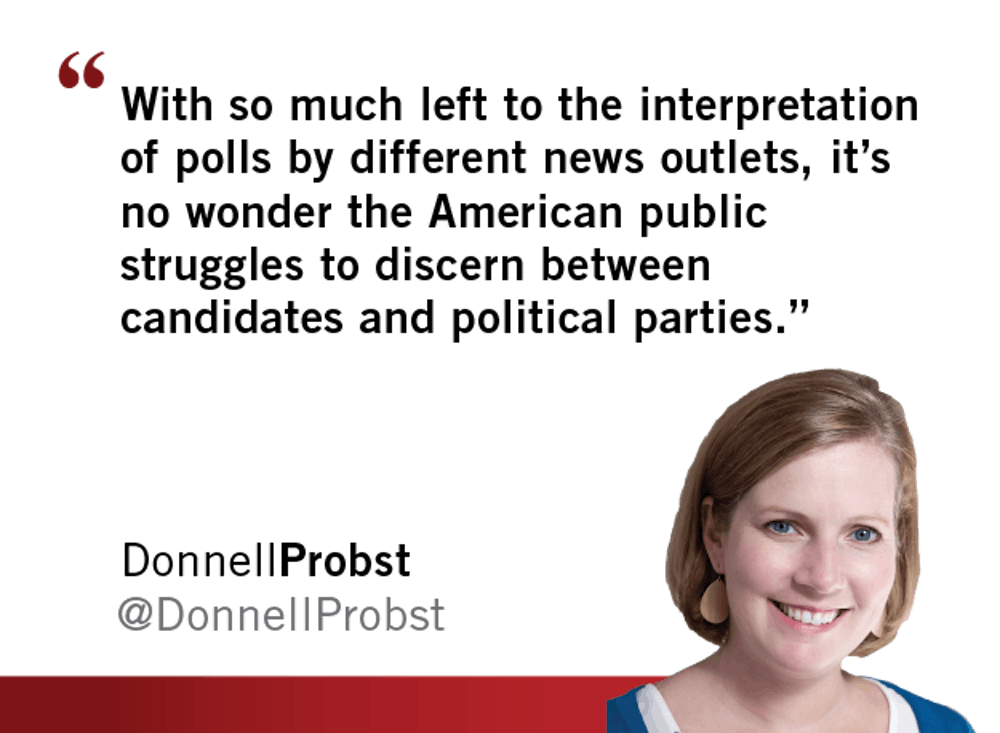Political polling has ramped up over the past few weeks, which can only mean one thing — the American election season is upon us.
At a time when the American public desperately begs for content which allows them to make informed decisions on Election Day, a quick scan of the news delivers nothing more than a multitude of polls criss-crossing the spectrum of news outlets. As polls systematically replace actual news and informative journalism, the American public unsurprisingly becomes less and less informed.
Polls about political parties, voters, and issues dominate the 24-hour news cycle while little or no attention is paid to new content that seeks to shed new light on the issues. Investigative journalism and information about candidates, issues and parties is sparse while polls claim to predict outcomes while calling voters to action with threats of party or candidate failure.
 But what do these polls actually tell us?
But what do these polls actually tell us?
A recent poll by NBC News and Marist Polls has been reported by several news outlets, but the interpretation of the polling results seems to be — well, up for interpretation.
American Thinker headlined news of the poll stating, “Tight Contests in Key States,” aligning closely with the reports by NBC News.
This is where similarities in reporting seem to end.
The website Hot Air reports a different headline claiming, “Sunday poll dump: GOP surging toward the finish line,” making a GOP win seem nothing short of inevitable — a far cry from the “tight” contests previously reported by NBC News and Marist. Hot Air even goes so far as to link to the NBC Poll surmising the “political winds (are) at the Republicans’ backs.”
With so much left to the interpretation of polls by different news outlets, it’s no wonder the American public struggles to discern between candidates and political parties.
Politico has dedicated an entire section of its website to election information and results, a move that would seem welcomed in the sea of electoral information that plagues the internet. Unfortunately, its efforts are not immune to the polling effect.
Out of 20 stories on the front page of their Elections home page, six headlines directly reference a poll while the content of 12 of their stories focuses heavily on polling results.
Not only does Politico’s election content rely on polling results, but one of the stories titled “Schumer, Portman talk polls, elections” actually recaps the discussion of poll results from an episode of "Meet the Press." In other words, a poll was published, then a television news program filled an entire segment of its programming with a discussion on the poll, of which Politico then published a summary as election news coverage on its website.
All in all, three separate opportunities to create relevant election content of candidates and issues were missed and instead the same piece of irrelevant election polling data was regurgitated and lazily reported by three separate news outlets.
Imagine if those three opportunities were instead used to provide background and insight into three different candidates running for public office? How drastically would this improve the election process for Americans?
Polling has clearly become the default filler in election news reporting, replacing information and facts that could potentially improve the knowledge of their readership with mindless fluff that aims to fill editorial space and give weight to issues that are indeed irrelevant to the election process.
Reach the columnist at dprobst1@asu.edu or follow her on Twitter @DonnellProbst
Editor’s note: The opinions presented in this column are the author’s and do not imply any endorsement from The State Press or its editors.
Want to join the conversation? Send an email to opiniondesk.statepress@gmail.com. Keep letters under 300 words and be sure to include your university affiliation. Anonymity will not be granted.
Like The State Press on Facebook and follow @statepress on Twitter.




